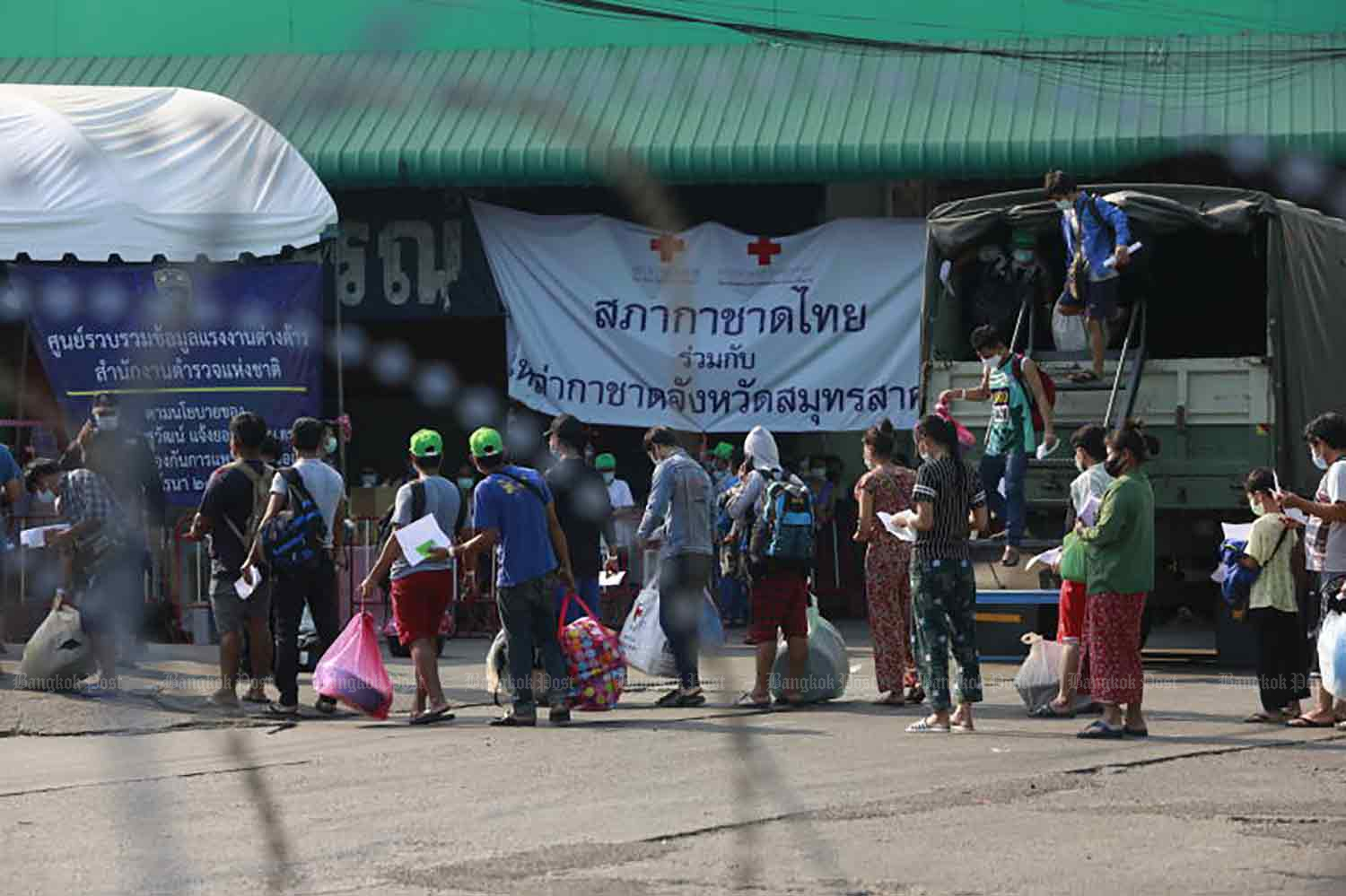
Stricter "seal and bubble" measures will be used to curb the spread of Covid-19 infections among migrant workers in Samut Sakhon after tests at seven factories over many weeks found almost 8,000 positive cases.
Surawit Sakdanupab, a deputy provincial health official, said public health officials in Samut Sakhon had agreed to adopt tough new disease control measures after news broke that the second wave of infections centred on the province is worse than first thought.
The "seal" method will apply to factories which have on-site accommodation -- workers will not be allowed to leave the premises.
The "bubble strategy" will apply to factories which have no on-site accommodation, so their workers stay at dormitories off the premises.
The goal of the new measures is to strictly regulate the travel and movement of workers all the way from their dormitories to their workplaces to prevent them from wandering off to other locations, Dr Surawit said.
Officials may be deployed to watch the workers at their dormitories and deliver food and other essential items to them so they don't need go outside, he said.
For workers living at widely scattered dormitories, local officials may have to locate them and enforce the bubble strategy throughout the whole area.
Phattraporn Tanngam, a ThaiPBS reporter, said proactive case-finding was undertaken at seven factories in Samut Sakhon and 7,878 out of around 50,000 workers had been confirmed infected.
Dr Surawit said the "seal and bubble" plan was likely to begin in the next few days after officials and business operators have finalised the details.
He admitted the "seal" method may affect local businesses in the short term it was expected to bring infections under control within 28 days, although the bubble method may be more tricky.
He urged businesses to follow health safety protocol strictly and if possible to provide workers with accommodation inside their factories or at designated locations that were easy to control.
Dr Surawit said closing factories would be a last resort if they were confirmed to be the breeding ground of infections and could not be brought under control.
Taweesilp Visanuyothin, spokesman of the Centre for Covid-19 Situation Administration (CCSA), said on Thursday that mass testing would continue in Samut Sakhon as large numbers of infections had been found in the province.
However, Dr Taweesilp said it cost the government about 20 million baht to test 10,000 people a day, so the CCSA would discuss how to strike a balance between daily mass testing and saving money.
The government on Thursday reported 809 new Covid-19 cases, 796 local infections and 13 imported, raising the total to 22,058.
Deputy Public Health Minister Sathit Pitutecha said it cost 2,000-3,000 baht for each case found through the proactive searching, so new technological innovations needed to be devised to reduce costs.
Deputy Prime Minister and Public Health Minister Anutin Charnvirakul insisted the Covid-19 situation in Samut Sakhon was improving -- hundreds of positive cases were being detected daily as a result of proactive searching.
So far, proactive testing has been conducted on 140,000 workers at 845 factories in Samut Sakhon. This has enabled officials to identify factories that needed to be closely regulated.